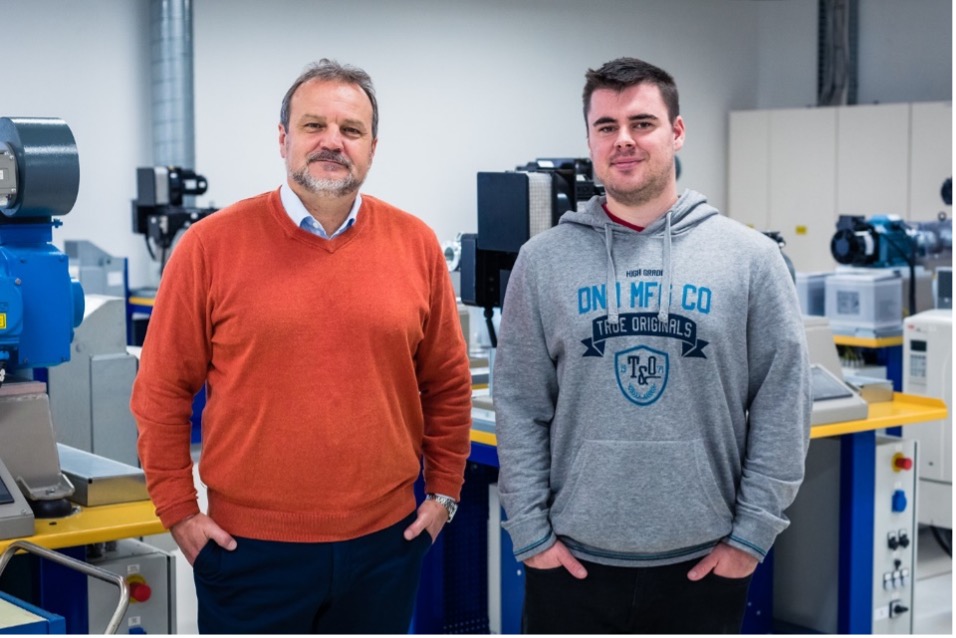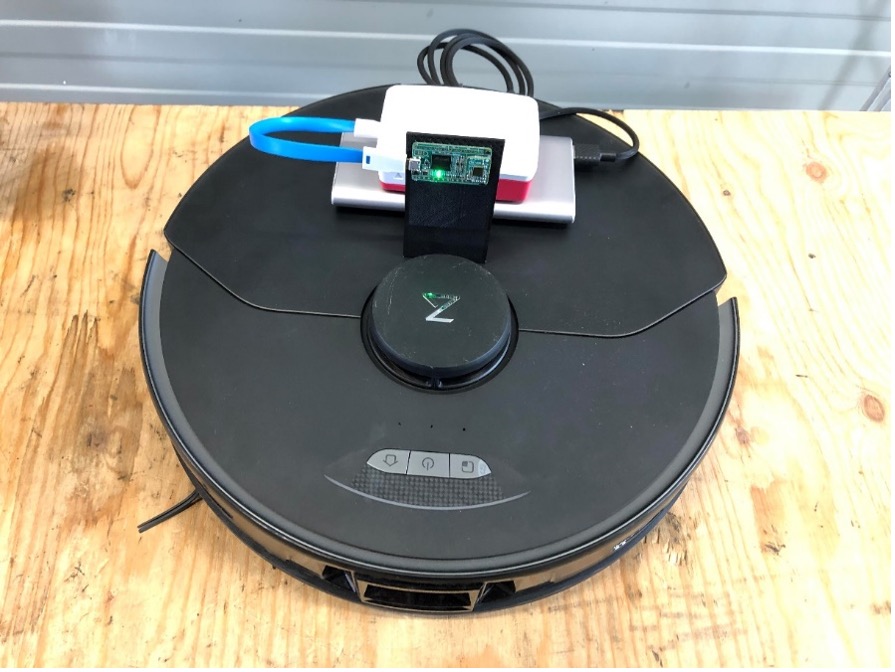Innovation of Széchenyi István University wins first prize at the international competition
The innovative use of cutting-edge radar technology was the task of the Infineon Technologies international hackathon competition, in which the team of Széchenyi István University won first place, ahead of renowned Austrian, Indian and Hungarian universities. With the development of the Schächenyis, the robotic vacuum cleaner recognises and does not disturb home office workers and even "understands" human gestures.
For the second time this year, global semiconductor company Infineon Technologies has launched a European hackathon competition in digital form, focusing on the diverse uses of radar technology. The company provided teams with state-of-the-art technology to explore new uses for it. They were looking for solutions to make the world a smarter, safer and greener place. Sustainability and innovation is a priority for Széchenyi István University. The institution entered the competition with a team of university staff and students from the Győr campus and the ZalaZONE Science and Innovation Park.
Eight teams qualified for the second, online round of the competition, which was won by Széchenyi István University, tied with Johannes Kepler University in Linz. The winners beat, among many others, the University of Szeged, the Budapest University of Technology and Economics, the University of Applied Sciences of Carinthia, the Vienna University of Technology from Austria, and the Netaji Subhash University of Technology from India. The Széchenyi University team's result earned them a place at Infineon's Villach Winter or Summer University.

Dr. Dénes Fodor, Head of the Department of Power Electronics and Electric Drives at Széchenyi University and József Lennert, Msc. student of Automotive Engineering Faculty (Photo: Csaba József Májer)
"The idea behind our development is that the robotic vacuum cleaner uses radar to detect the presence of a human being and sends the device to another room to continue its work. This innovation could be a convenient application for people working in a home office, for example, as the device cleans the home without disturbing the work," said Dr. Dénes Fodor, Head of the Department of Power Electronics and Electrical Drives at Széchenyi University and Scientific Director of the e-Mobility Centre at the Centre for Automotive Research.
He added that the unique feature of their application is that the radar recognises gestures and can execute the predefined sequence of instructions. "To put it simply, if the vacuum cleaner comes into the room and we make a shooing gesture, the machine will leave the room. Until now, only camera systems could perform a similar function," he added. As a mentor of the team, he said that the Science and Innovation Park of Széchenyi István University, established at ZalaZONE, is doing significant research in the field of electromobility and autonomous vehicles. The conversion of the autonomous vacuum cleaner was carried out at ZalaZone, supported remotely by colleagues from Győr.
Dr. Dénes Fodor emphasized that the significance of the competition was that young people had to reflect on a real industrial challenge, which significantly increased their practical knowledge. He said: "Our aim is to equip our students with research and development skills that can be used in the market, and with internationally sought-after expertise. The results we have just achieved show that we are on the right track."

The award-winning innovation of the team at Széchenyi István University is a radar-enhanced utonomic vacuum cleaner that "understands" simple hand movements.
"We chose a topic that has a real practical use, as there are few examples of this kind of radar application. During the competition, we turbocharged a robot vacuum cleaner with the radar we had, allowing us to replace some sensors and create new functionalities," said József Lennert, a Master's student in automotive engineering and the "team captain" of the winning team from Széchenyi University.
He said they had to deal with an unexpected difficulty during the race, as the package containing the radar got lost and arrived much later than planned, on the second evening of the three-day race. "As a result, we spent the first two days of the competition working on the theory and hunting for the package, leaving us only one day for the actual implementation. In the end we managed to overcome the unexpected challenges, which perhaps made the competition even more memorable for us." - recalled the student.
According to the young professional, it has helped them to improve their technical knowledge and, as the language of the competition was English, their language skills. "But I would say the main benefit of the competition was that we all realised that we should never give up. We started from an indescribable disadvantage compared to the other teams, and even on the first day of the competition we didn't know if the device would arrive before the end. But our professionalism, team spirit and perseverance were crowned with success," he concluded.
The winning team of the Széchenyi István University was composed of Dr. Dénes Fodor (mentor), József Lennert (Msc. student, team captain from Győr), Márton Jagicza (team captain from Zala), Richard Preszleg, Dávid Józsa, Gergely Hunyadi, Ábel Elekes (implementers). Technical sponsors of the competition were Dr. András Háry (ZalaZONE Industrial Park Zrt, Letícia Pekk (Project Manager, ZalaZONE), Dr. Ferenc Szauter (Head of the Centre for Automotive Research, Széchenyi István University).











